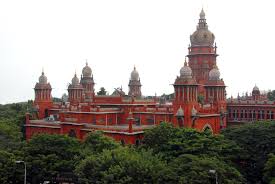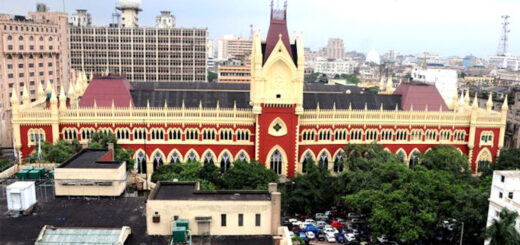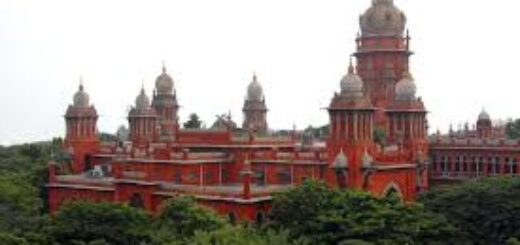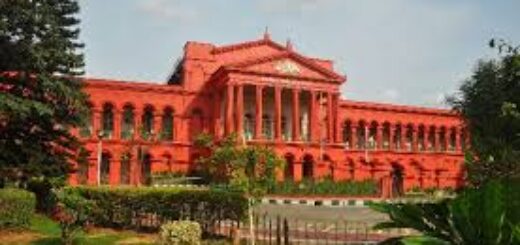The Madras High Court has ordered the Director of Medical Education to organize awareness programs to update knowledge on LGBTQIA+ issues.

The Madras High Court has instructed the Director of Medical Education in Tamil Nadu to organize awareness programs focused on LGBTQIA+ issues and to include speakers from that community. This decision came while the Court was reviewing a Writ Petition that discussed the need for either a separate policy for the transgender and intersex communities or a unified policy that encompasses all groups. Justice N. Anand Venkatesh, in a Single Bench, stated that the Director of Medical Education should implement these awareness programs in all government and private medical colleges in Tamil Nadu, using the medical education curriculum from the NMC as a guide, and ensure the participation of LGBTQIA+ speakers. This directive must be followed thoroughly.
Advocate Vadhana Bhaskar represented the Petitioners, while Additional Public Prosecutor R. Muniyapparaj, Senior Panel Counsel V. Chandrasekaran, Senior Advocates Sriram Panchu, G. Sankaran, and Advocate B.S. Ajeetha represented the Respondents. The Writ Petition argued that creating a separate policy for transgender and intersex individuals could lead to division within the LGBTQIA+ community, which would not benefit the community as a whole. It was emphasized that the community has united in their struggles, and disrupting this unity could undermine their progress.
There is a lack of understanding regarding the issues faced by transmen, and they, along with the intersex community, have limited representation in the committee. It is important that creating a separate policy for transgender individuals does not exclude or marginalize transmen and intersex people. Conversely, it was argued that having two distinct policies would not create division; instead, it would provide clarity and strengthen the collective fight for recognition among all members of the LGBTQIA+ community.
The High Court emphasized that it is the legislature’s role to finalize the policy and enact it into law, stating that the court cannot interfere in this legislative area. The court expressed hope that the opinions shared during the hearings would be considered by the State before the policy is finalized. It noted that it is rare for the Government to allow public discussion on a policy before it becomes law, indicating a willingness to incorporate feedback from all stakeholders. The court remarked that this forthcoming law would be unique in the country and could lead to a brighter future for those who have been marginalized and exploited for a long time. Consequently, the court granted the State three months to develop the finalized policy.
The Court noted that it would be better to include information about conversion therapy in the curriculum for medical students, making it clear that this practice is completely prohibited and can lead to serious consequences. By adding this topic to the curriculum, students will become more aware, and the new regulations from 2023 will eventually take effect. The Court also instructed the Ministry of Education to review the finalized module from the NCERT and provide their approval within eight weeks.
Additionally, the Court addressed an incident at Madurai Medical College in September 2024, where a session on LGBTQIA+ issues was held. This event had 120 final-year students and five speakers. During the session, a cardiologist interrupted, declaring a boycott and telling students to leave. This action was seen as an attempt to disrespect the speakers, especially three from the LGBTQIA+ community, two of whom were not in medical professions. The counsel argued that including the experiences of community members in such seminars could improve healthcare for LGBTQIA+ individuals and create a more inclusive system. However, the dean responded with strict measures after the disruption. The counsel requested the Court to issue directions to prevent future disruptions.
The Court stated that this incident highlights the attitudes of some individuals involved in medical education. Therefore, it is crucial to have LGBTQIA+ individuals speak about their experiences to help medical and healthcare professionals better understand their challenges. The Court emphasized that sharing personal experiences is the most effective way to raise awareness. As a result, the High Court provided necessary instructions and scheduled the case for June 9, 2025.
Cause Title: S. Sushma & Anr. v. Director General of Police & Ors. (Case Number: Writ Petition No.7284 of 2021)
Appearance:
Petitioners: Advocates Vadhana Bhaskar and S. Manuraj.
Respondents: APP R. Muniyapparaj, SPC V. Chandrasekaran, Senior Advocates Sriram Panchu, G. Sankaran, Advocates B.S. Ajeetha, R. Ramaswamy, K. Chandrasekar, Subharanjani, B. Rabu Manohar, Jayna Kothari, and Rajagopalan.









